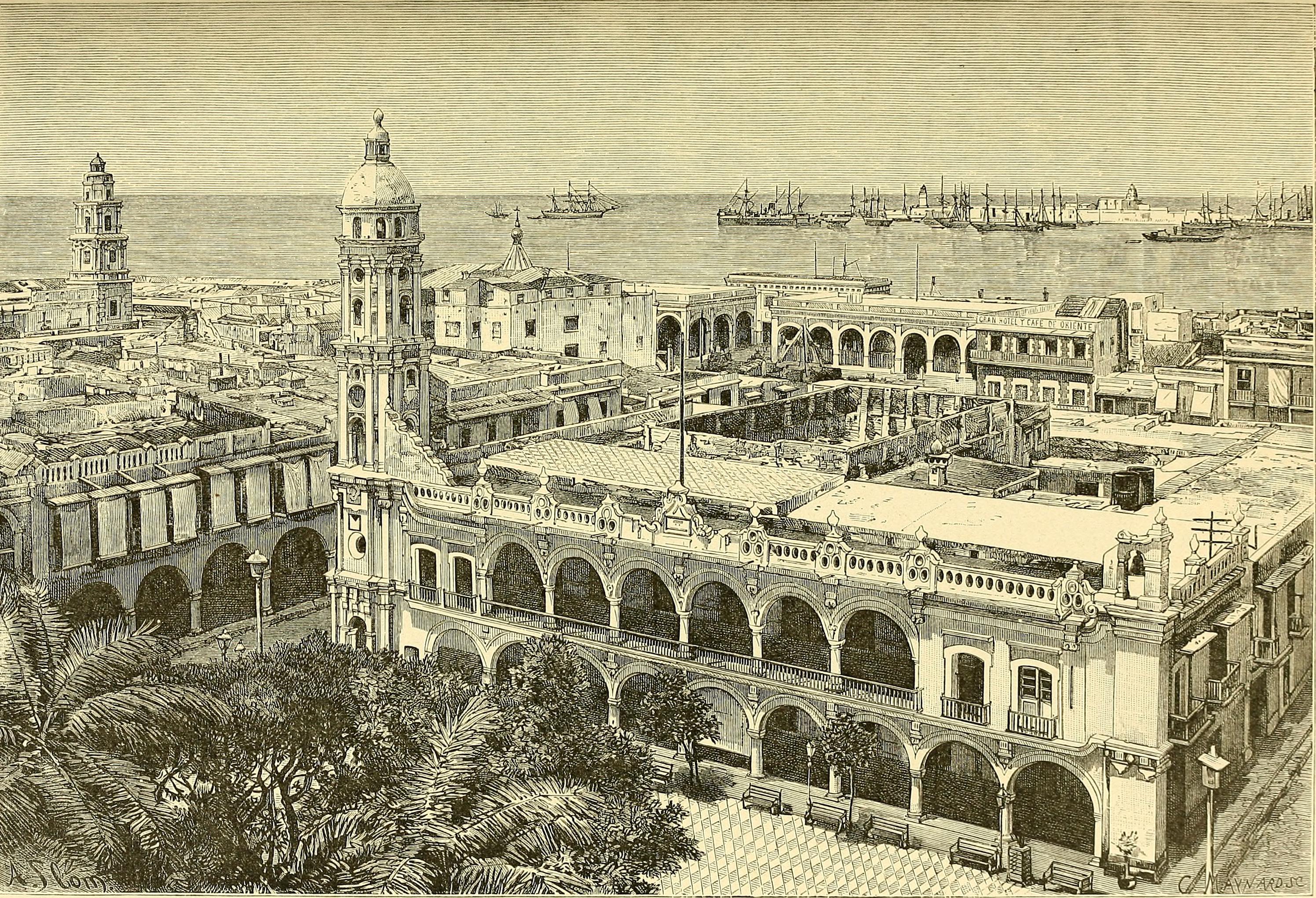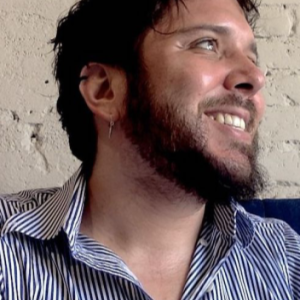Spring 2024 PhD Student Spotlight, Juan Ignacio Wilson

Thank you so much for taking the time for this interview. To begin, how does your dissertation, “The Many Foundations: Reform, Revolution, and the Transformation of Law and Politics in Mexico, 1867-1940,” help us better understand Mexico's legal and political structures?
I think it helps us understand what a revolution, which ended with a new constitution, can and cannot do in terms of transforming ingrained structures of power. I am looking at very local institutions and trying to understand how those local structures shape more general forms of rule. They are the essential building blocks of the state order but act with relative independence of the central state. The revolution and the constitution changed many aspects of the Mexican state on paper, but as long as the founding blocks at the local level remained untouched, the continuities were much stronger than the ruptures. There was people who saw this at the moment and who tried to make the revolution’s legacy all about the transformation of local forms of government, conflict solving, resource administration, etc., but those attempts were ultimately not successful.
In terms of Mexico, I believe studying the continuity in local forms of governance before and after the revolution goes a long way in explaining the stability of the PRI (The Party of the Institutionalized Revolution, which governed Mexico until the year 2000) and some authoritarian aspects of the country’s politics even today. In addition, I think the dissertation is also useful for understanding the concept of revolution and what revolutionary action—of which there was a lot in Latin America during the 20th century—can achieve, especially when it needs to deal with the creation of new legal institutions in order to stay in power and produce the promised changes. No revolutionary movement can escape that uncomfortable moment of legalization and institutionalization. Yet in Latin America, those moments have been less theorized and studied than the romantic moments of violent government overthrow, maybe because those moments of everyday politics and rule are much more boring than the “event” of a revolution yet they are inextricably tied together.
Where have you traveled to conduct your research? Have you found anything particularly surprising or compelling?
I have traveled through Mexico, moving from Mexico City to Guanajuato, Oaxaca, and especially Veracruz, which I adopted as my main research site. In the case of Veracruz, one of the things that strikes me is how one of the richest states within Mexico, the seat of the country’s main Atlantic port, the cradle of the Mexican oil industry in the early 20th century, the most populated state at that time, an area of large sugar and coffee plantations and the largest textile factories, the birthplace of very radical agrarian and labor movements in Mexico, etc., transformed from the richest to one of the poorest areas of the country. That in itself requires an explanation.
What drew your interest to Latin American legal and social history?
The simple answer to that question is biographical. I was born in Chile and trained as a lawyer, so the question of the interaction between law and social change in the region in which I grew up seemed like the natural outcome of my studies. In a much deeper sense, however, I have always been curious, not only about the extent to which law can actually produce social change—a fact that policymakers and bureaucrats tend to take for granted—but more importantly, how that change is produced. What are the mechanisms through which law intervenes in social practices, how does it interact with established customs, how does it transform the language through which we describe our political conflicts, etc.? Laws—legal institutions generally—are very complex mediators between political aspirations and social conduct. The question of how change is produced is the point where history comes in, when you ask not just what happened, but how it happened.
Are there differences in the way legal history in Latin America and legal history in the US are practiced? How and why?
Several, some of which make writing legal history in a Latin American context particularly challenging. First, there is an atavistic and deep-seated skepticism about the law’s effectiveness in Latin America. Many social scientists—historians, sociologists, anthropologists—have put more effort into studying economic inequality, religion, family structure, etc., than trying to understand the law, partly because they don’t see it as having any explanatory power. The field of legal history has then been taken by lawyers with little concern for social dynamics, who have developed the field as a form of antiquarianism. Within Latin America's historical profession, legal history is, with few honorable exceptions, one of the most conservative fields of study, practiced mainly by lawyers within law schools, and completely uninterested in questions of social conflict and social change.
This is not the case in the US. At least since the advent of critical legal studies, if not before, legal history has sometimes been able to adopt a subversive role. It has been used to question accepted historical narratives and simple explanations for social change. The basis for that kind of history is an understanding that law is a partially autonomous system. While it is influenced by economics, politics, religion, etc., it also influences those systems in turn and, therefore, has an independent explanatory power when trying to understand social change. That influence is not easily described though it has to do with changes in political narratives, the quotidian use of judicial institutions by people previously excluded from the systems of power, and forms of empowerment or cooptation of social movements. Law’s impact is not a simple mechanic of passion of the law + punishment = change in behavior, the sort of “felicific calculus” that Jeremy Bentham wanted. Historians, however, have found and keep finding sophisticated ways to explain laws impact on social practice.
Aside from your research, I believe you are quite involved with the Forum on Law and Legalities, housed in the Law, Letters, and Society program at UChicago. What is your role and can you tell me a little about it?
Together with a colleague in the history department, Benjamín Montaño, also a Latin Americanist, also working on legal history, we both had a role in its foundation, and as coordinators during the Forum’s first four quarters of existence. We saw that stemming from different geographical contexts and working with various methodologies, many faculty and graduate students were interested in questions about law and its role in social change. We thought that we could all benefit from more interdisciplinary discussion, seeing how our projects are read by people outside our own field. Moreover, this is a topic that has gained a lot of traction in other universities, under the umbrella of the Law and Political Economy project, born and housed at Yale Law School. Having a space like a Forum on Law and Legalities will help us connect with that project and invite scholars from other universities working on similar issues.
At first we thought structuring this as a workshop under the Council for Advanced Studies, but sadly there were very little resources for such an initiative. So, we talked to Jon Levy and he came up with the idea of housing the project under the Law, Letters, and Society program, which has been great for flexibility and to attract faculty to it. I believe the Forum is operating successfully. The current coordinators, Natalia Niedmann and Nahomi Esquivel, have been doing a fantastic job of putting together a roster of great presentations. Attendance has been good and the discussions have been really stimulating, precisely the type of debate we envisioned when the project started.
What other organizations or projects are you involved in at UChicago?
I am in my final years of the program, so I have been cutting back on some of my obligations. However, I have been constantly affiliated with the Center for Latin American Studies and the Center for International Social Science Research. I was also a fellow at the Pozen Family Center for Human Rights, which was another great experience of interdisciplinary discussion about legal topics. In a more casual vein, I have been participating in a Gramsci reading group that meets regularly to discuss the Prison Notebooks. It is mostly people from history, but some people from political science have joined us. We also have the good luck of having people who read Italian in the group, so we don’t get lost on translation issues. I would say, jokingly, that it’s like reading with an arbiter.
 THE UNIVERSITY OF CHICAGO
THE UNIVERSITY OF CHICAGO


